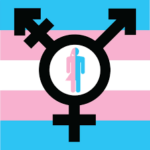Hormone therapy has become a common treatment for various health issues, particularly in women experiencing menopause or those with hormone-sensitive cancers. However, the implications of hormone therapy on breast cancer risk have sparked much debate and research. Understanding the intricacies of hormone therapy and its potential risks is essential for anyone considering this treatment. This article aims to shed light on hormone therapy, breast cancer, and the factors that play a vital role in making informed health decisions.
What is Hormone Therapy and How Does It Work?
Hormone therapy, often referred to as hormone replacement therapy (HRT), is a treatment designed to relieve symptoms related to hormonal imbalances, particularly during menopause. It typically involves the administration of estrogen, progesterone, or a combination of both to replenish the hormones that the body no longer produces in adequate amounts. By restoring hormonal balance, HRT can alleviate symptoms like hot flashes, mood swings, and vaginal dryness, significantly improving quality of life for many women.
The therapy works by mimicking the body’s natural hormones, which can help regulate various physiological processes. For example, estrogen plays a significant role in bone health, cholesterol management, and maintaining skin elasticity. However, while HRT can offer numerous benefits, it also carries risks that must be carefully weighed, especially concerning conditions like breast cancer.
Understanding Breast Cancer: Key Facts You Should Know
Breast cancer is one of the most common cancers affecting women worldwide, with about 1 in 8 women diagnosed in their lifetime. It occurs when uncontrolled growth of breast cells forms a tumor, which can be invasive (spreading to other parts of the body) or non-invasive. Early detection through regular screenings, such as mammograms, is crucial, as it significantly improves treatment outcomes and survival rates.
Risk factors for breast cancer include age, family history, genetic mutations, and lifestyle choices such as diet and exercise. Hormonal factors also play a pivotal role, as breast tissue is sensitive to hormones like estrogen and progesterone. Understanding these risk factors can empower women to take proactive steps in managing their health and making informed decisions about hormone therapy.
The Link Between Hormone Therapy and Breast Cancer Risk
The relationship between hormone therapy and breast cancer risk has been a topic of extensive research. Studies have shown that long-term use of combined estrogen and progesterone therapy, particularly in women over age 60 or those who have a history of breast cancer, can increase the risk of developing breast cancer. The increased risk is thought to stem from the way these hormones influence cell growth in breast tissue.
However, the risk associated with hormone therapy is not uniform across all women. Factors such as age, duration of therapy, family history, and personal medical history can significantly influence an individual’s risk. Thus, understanding the nuances of this relationship is crucial for anyone considering hormone therapy as part of their treatment plan.
Estrogen and Progesterone: The Hormones in Focus
Estrogen and progesterone are two key hormones that are central to the discussion of hormone therapy and breast cancer risk. Estrogen is primarily responsible for developing and regulating the female reproductive system and secondary sexual characteristics. It also plays a role in the growth of breast tissue, which is why it is particularly relevant in conversations about breast cancer.
Progesterone, on the other hand, helps regulate the menstrual cycle and prepares the body for potential pregnancy. In hormone therapy, combining these two hormones can help balance their effects on the body. However, the interplay between estrogen and progesterone has implications for breast cancer, as elevated estrogen levels can promote the growth of certain types of tumors. Therefore, monitoring and managing hormone levels is essential when considering therapy options.
Who Should Consider Hormone Therapy? Risks and Benefits
Hormone therapy can be a beneficial option for women experiencing severe menopausal symptoms, but it’s not suitable for everyone. Women with a history of hormone-sensitive cancers, such as breast cancer, or those with certain genetic predispositions may face heightened risks with hormone therapy. The decision to use HRT should involve a thorough discussion of personal health history, family history, and lifestyle factors.
For those who qualify and are seeking relief from menopausal symptoms, the benefits of hormone therapy can be substantial. Improved mood, reduced hot flashes, and better overall quality of life are some of the advantages that make hormone therapy appealing. However, weighing these benefits against potential risks, such as increased breast cancer risk, is crucial for making an informed decision.
Evidence-Based Research on Hormone Therapy and Cancer
Research on hormone therapy and its effects on breast cancer risk has evolved over the years, and evidence continues to emerge. For instance, the Women’s Health Initiative (WHI) study revealed significant findings regarding the increased breast cancer risk associated with long-term hormone therapy. However, more recent studies suggest that not all hormone therapies carry the same risk, and the timing of therapy initiation may also play a role.
It’s essential to stay updated on ongoing research and recommendations from healthcare professionals. Evidence-based guidelines can help inform decisions about hormone therapy, ensuring that women receive the most current and comprehensive information to guide their treatment choices.
Making Informed Choices: Talk to Your Healthcare Provider
A crucial step in managing hormone therapy and understanding breast cancer risk is to have open conversations with your healthcare provider. Discuss your symptoms, medical history, and any concerns about hormone therapy’s potential risks. A knowledgeable provider can help evaluate your individual risk factors and recommend the best course of action tailored to your needs.
In addition, consider seeking a second opinion if you’re uncertain about the recommendations provided. It’s essential to feel comfortable and confident in your treatment plan, especially when navigating complex issues related to hormones and cancer risk. Empower yourself by being an active participant in your healthcare decisions.
Lifestyle Tips to Reduce Breast Cancer Risk on Therapy
If you’re considering or currently undergoing hormone therapy, adopting a healthy lifestyle can play a significant role in reducing your risk of breast cancer. Regular physical activity, maintaining a balanced diet rich in fruits, vegetables, and whole grains, and managing your weight are essential components of a healthy lifestyle. These habits not only support overall well-being but also help mitigate some risks associated with hormone therapy.
Additionally, avoiding excessive alcohol consumption and quitting smoking are crucial steps in reducing breast cancer risk. Regular screenings and self-examinations can also empower you to stay proactive about your breast health. By making informed lifestyle choices, you can help create a supportive environment for your body while undergoing hormone therapy.
Navigating the complexities of hormone therapy and breast cancer risk can feel overwhelming. However, understanding the nuances of hormone therapy, along with the risks and benefits, can empower you to make informed health decisions. Open communication with your healthcare provider, combined with a commitment to a healthy lifestyle, can significantly enhance your overall well-being. Remember, knowledge is power, and staying informed is the best way to advocate for your health.


